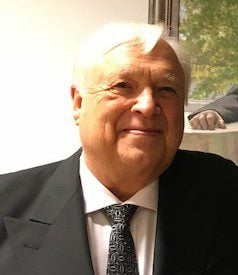Common Good Governing? What a great idea!
PT 3011. Common Good Part One

Let me introduce you to Common Good Governing. I want to introduce you to both the idea of the common good as well as some advocates you might like to meet who believe in this idea.
Here is what is broken and needs to be fixed: the only thing that happens is Washington DC these days is politics. We have plenty of politics. What we need is governance. For two decades or more, Washington has forgotten how to govern.
Politics vs. Governance
Syl Sobel of the Baltimore Sun alerts us to the distinction between politics and governance.
People often confuse politics and governance. Or, more accurately, they believe all government is politics and don’t recognize the difference between it and governance.
But politics is only a part of our republican system of government.
Politics is the process by which individuals obtain governmental office and authority. Governance is what those people are supposed to do when they get it.
Politics means doing whatever you legally can to advance your and your party’s election interests. Governance means doing what’s in the best interests of the people you represent, regardless of its effect on your political interests.
Politics means clinging to narrow positions on controversial issues and refusing to find solutions in order to appeal to like-minded voters. Governance means working together with people of different views to seek consensus and advance the common good.
True governance is what government does when oriented toward the common good.
Meet Common Good Governing
Meet Common Good Governing, a small yet rapidly growing group of more than 1500 conscientious citizens. CGG’ers are roots ready to grow into grass. Like Diogenes walking the streets in daytime with a flashlight looking for an honest person, CGG’ers search for relatively non-partisan and non-ideological US House candidates with personal integrity.
When they find such a candidate, they make this known and help the campaign, primarily by connecting it to “sometimes voters” in the congressional district. The only way to turn Washington from politics into governance is to elect individuals with integrity who believe in the common good.
Whom have they found? Here’s some found and assisted by CGG and now in the House.
Conor Lamb, Pennsylvania
Elaine Luria, Virginia
Kathy Manning, North Carolina
Elissa Slotkin, Michigan
Dean Phillips, Minnesota
Carolyn Bordeaux, Georgia
Whether Democrat, Republican, or Independent, it is devotion to the common good which gets you on the CGG support list.
Simply offering such support is frustrating work, however. Here’s an excerpt from the CGG July 2022 Newsletter.
What saddens me most are the seemingly promising candidates who ignore our outreach to assist them. I understand they may not know who we are, but completely ignoring multiple communications suggests a poorly run campaign, which doesn’t bode well for their chances ahead. You should know that if they win their primary, we try, try again.
Despite the frustration, the only way to climb the steep mountain to the peak of a rejuvenated democracy is to take the first steps on the upward trail.
If you would like to learn more about CGG, drop a note to [email protected].
Meet the Campaign for Common Good
Meet the Campaign for Common Good. Note their principles for good governing.
- Govern for goals
- Honor human responsibility
- Everyone is accountable
- Reboot regulation
- Enforce boundaries on lawsuits
- Restore the moral basis of public choices
What is the moral basis of public choices? A vision of the common good.
“The purpose of Common Good Governing,” observes opposition researcher Richard Elfers, “is to get pragmatic people elected to the House of Representatives; folks who are more interested in making material progress on issues than serving a party and/or ideology.”

Public Theology and the Common Good
If you’ve been following this Patheos newsletter series, you’ve become familiar with my description of public theology. I’ve been saying that public theology is conceived in the church, critically reasoned in the academy, and offered to the wider culture for the sake of the global common good. What I envision does not yet exist, namely, a single planetary community of moral deliberation dedicated to the common good.
What is the common good? “The term ‘common good’ is associated with Roman Catholic social thought,” Gene Veith rightly observes. Pope Paul VI defined the common good as “the sum of those conditions of social life which allow social groups and their individual members relatively thorough and ready access to their own fulfillment.”
To human individuals and groups, we might add nonhuman life and even our planet. We might also add our progeny, our future. This is what we find in an Eevangelical Lutheran Church in America (ELCA) social statement. “Today, the meaning of ‘common good’ or ‘good of all’ must include the community of all living creatures. The meaning also should extend beyond the present to include consideration for the future of the web of life. The sphere of moral consideration is no longer limited to human beings alone.”

In his widely read encyclical, Paccem in Terris, Pope John XXIII reminded us that the common good is a special responsibility of those who govern. “The attainment of the common good is the sole reason for the existence of civil authorities.”
The common good provides a vision, an ideal, an image of the future toward which we muster resources to actualize. Yet, the public theologian must be sober, realistic. Jewish theologians repeatedly guard against false messiahs. “Any political theology that proposes an allegedly higher point of view regarding political reality, is its failure to address the nature of the will to power. In attempting to overcome messianic utopianism on both sides, it runs the risk of its own utopianism,” avers David Barak-Gorodetsky. “The unity of opposites between liberalism and conservatism is not only a present need, but rather a goal and an act of a distinctly religious nature.” Whether this applies to Israel or the U.S., such realism is welcome to the public theologian. Yet, I’m still a futurist. I’m still a theologian of hope. I pray, “thy kingdom come.”
The futurist along with the ecotheologian lift up common good governing as a means to an end: a just, sustainable, participatory, and planetary society.
What comes next? Myth-Busting the Religion of Economism

This introduction to common good governing is the first in a series of Patheos posts on economism and the common good.
It’s not just politics that thwarts us from pursuing the common good and accelerating social progress. It’s greed. Especially greed built into the economic system that skews and distorts and perverts the government we have elected.
In subsequent Patheos posts I plan to demythicize the de facto global and national religion to which virtually all of us subscribe, namely, the religion of economism. Adherence to the doctrines of economism makes devotion to the common good a form of heterodoxy. Please be on the alert for the rest of this series of posts.
This series will be an exercise in public theology. We will decorticate economic and political rhetoric. This method I have previously dubbed, “discourse clarification.”
Conclusion
I envision a more compassionate America. The only way for America to retrieve its democratic spirit replete with a commitment to global flourishing and social justice is to embrace a national, global, and even galactic common good. Would that the angels would send us just such persons to run for high office.
▓

Ted Peters is a Lutheran pastor and emeritus seminary professor, teaching theology and ethics. He is author of Short Prayers and The Cosmic Self. His one volume systematic theology is now in its 3rd edition, God—The World’s Future (Fortress 2015). His book, God in Cosmic History, traces the rise of the Axial religions 2500 years ago. He has undertaken a thorough examination of the sin-and-grace dialectic in two works, Sin: Radical Evil in Soul and Society (Eerdmans 1994) and Sin Boldly! (Fortress 2015). Watch for his forthcoming, The Voice of Christian Public Theology (ATF 2022). See his website: TedsTimelyTake.com.
Ted Peters’ fictional series of espionage thrillers feature Leona Foxx, a hybrid woman who is both a spy and a parish pastor.
▓













